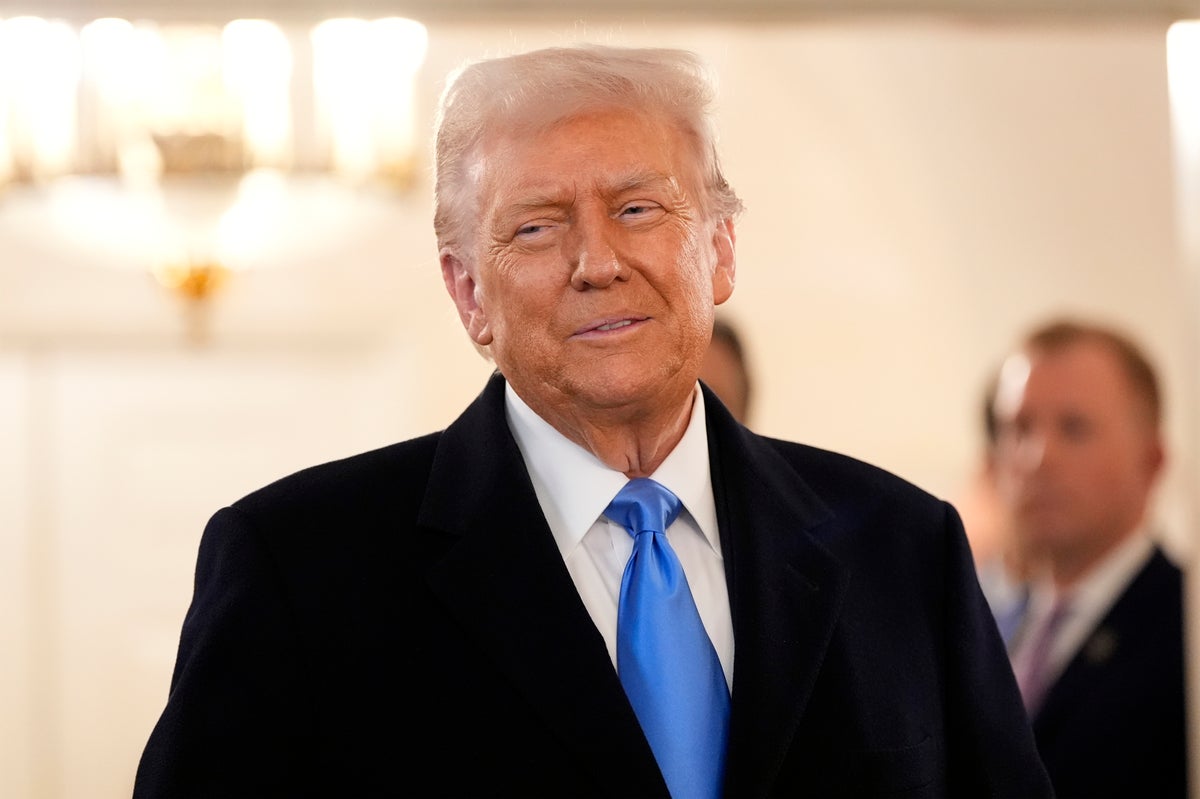Exclusive: The ‘deeply troubling’ move comes amid concerns US ignoring international climate ramifications. US officials have missed recent international climate forums sparking concerns about a potentially significant shift from Donald Trump’s first term, a review of meeting records and interviews with meeting attendees by the Centre for Climate Reporting and the Guardian show.
On his first day back as president, Trump signed an executive order on stage in front of supporters at an arena in Washington DC which he said was aimed at quitting what he called the “unfair one-sided Paris climate accord rip off”. Trump’s exit from the Paris agreement means the US will join Iran, Libya and Yemen as the only countries outside the international agreement adopted in 2015 to limit global warming.
While Trump left the agreement during his first term, US officials continued to play a leading role in meetings convened by the United Nations Framework Convention on Climate Change (UNFCCC), the 1992 parent treaty to the Paris agreement. The US is still a signatory to the UNFCCC and Trump has not said whether or not he intends to leave.
However, since the start of his second term last month, US officials seem to have not attended any meetings, according to meeting minutes and recordings posted to the UNFCCC website and people with knowledge of the meetings who spoke to CCR under the condition of anonymity.
US representatives appear to have missed at least four international climate meetings in recent weeks, CCR and the Guardian found. Trump has also reportedly blocked US government scientists from attending a meeting this week of the Intergovernmental Panel on Climate Change (IPCC) as the group prepares its seventh major report on the state of the crisis.
Meetings missed by US officials in recent weeks include that of a UNFCCC climate finance committee. The US Department of State official who sits on the committee does not appear to have attended a meeting last week, according to a livestream of the event, despite US representatives attending throughout Trump’s first term, meeting reports show. Meanwhile, an official from USAid missed a meeting last week of an expert group which helps poor countries develop plans to tackle the climate crisis, according to a person with knowledge of the meeting.
Despite the relatively low profile nature of the meetings US officials have skipped over the past month, their absence raises questions about the extent to which the Trump administration will engage in international climate talks during his second term. The secretary of state, Marco Rubio, said earlier this month that he would skip the G20 summit because it was being used to “promote … DEI and climate change”.
“My job is to advance America’s national interests, not waste taxpayer money or coddle anti-Americanism,” he posted on X. Timo Leiter, a distinguished policy fellow at the London School of Economics who contributed to the previous IPCC assessment report, described the recent blocking of US scientists from the meeting this week as “another deeply troubling and worrying sign that the Trump administration is determined to outright ignore one of the biggest problems of humanity”.
Leiter, who also co-leads a UNFCCC expert group, said he hadn’t had any communication with anyone from the state department since the start of Trump’s second term, which is “unusual and isn’t a good sign”. A group of 20 ministers from developed and developing countries, including the EU, the UK, and several small island states, wrote an open letter calling for the IPCC to “be informed by the best and latest available science”.
They wrote: “That science allows leaders and negotiators to work together, in good faith and with strong evidence, to chart a course towards a … world that is safer and more just for all people.”. Although they do not name the US or Trump, the letter is believed to be in part in response to fears that the US would pull out of or disrupt the IPCC process and that the next IPCC report could be delayed or marred by omissions.
The ministers, from the High Ambition Coalition group of countries, of which the US was supportive when John Kerry was climate envoy to Joe Biden, wrote: “As we see the impacts of the climate crisis worsening around the world, we watch fires, floods, strengthening storms, and drought and starvation destroy lives and communities. We owe it to everyone suffering the impacts of the climate crisis now, and to future generations, to make decisions about our planet’s future on the basis of the best evidence and knowledge available to us.”.
Trump has also rescinded $4bn pledged to the Green Climate Fund, which was established as part of the UNFCCC to help poorer nations pay for efforts to tackle the crisis. According to Politico, which first reported the rescinding of US funds, during his first term Trump allowed money promised during previous administrations to stay on the fund’s books. A US state department official who sits on the fund’s board and their alternate were not at a board meeting last week, the chairperson said during a livestream of the event.































